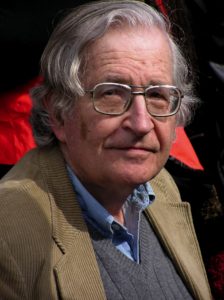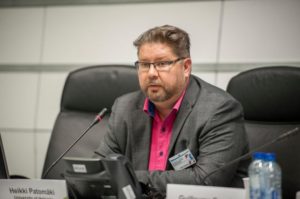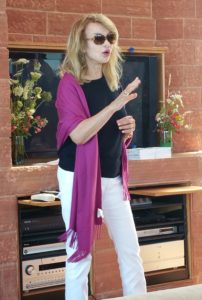Noam Chomsky On The Perils Of Market-Driven Education
Throughout most of the modern period, beginning with the era known as the Enlightenment, education was widely regarded as the most important asset for the building of a decent society. However, this value seems to have fallen out of favor in the contemporary period, perhaps as a reflection of the dominance of the neoliberal ideology, creating in the process a context where education has been increasingly reduced to the attainment of professional, specialized skills that cater to the needs of the business world.
What is the actual role of education and its link to democracy, to decent human relations and to a decent society? What defines a cultured and decent society? World-renowned linguist, social critic and activist Noam Chomsky shares his views on education and culture in this exclusive interview for Truthout.
C. J. Polychroniou: At least since the Enlightenment, education has been seen as one of the few opportunities for humanity to lift the veil of ignorance and create a better world. What are the actual connections between democracy and education, or are those links based mainly on a myth, as Neil Postman argued in The End of Education?
Noam Chomsky: I don’t think there is a simple answer. The actual state of education has both positive and negative elements, in this regard. An educated public is surely a prerequisite for a functioning democracy — where “educated” means not just informed but enabled to inquire freely and productively, the primary end of education. That goal is sometimes advanced, sometimes impeded, in actual practice, and to shift the balance in the right direction is a major task — a task of unusual importance in the United States, in part because of its unique power, in part because of ways in which it differs from other developed societies.
It is important to remember that although the richest country in the world for a long time, until World War II, the US was something of a cultural backwater. If one wanted to study advanced science or math, or to become a writer and artist, one would often be attracted to Europe. That changed with World War II for obvious reasons, but only for part of the population. To take what is arguably the most important question in human history, how to deal with climate change, one impediment is that in the US, 40 percent of the population sees it as no problem because Christ will return within the next few decades — symptomatic of many other pre-modern features of the society and culture.
Much of what prevails in today’s world is market-driven education, which is actually destroying public values and undermining the culture of democracy with its emphasis on competition, privatization and profit-making. As such, what model of education do you think holds the best promise for a better and peaceful world?
In the early days of the modern educational system, two models were sometimes counterposed. Education could be conceived as a vessel into which one pours water — and a very leaky vessel, as we all know. Or it could be thought of as a thread, laid out by the instructor along which students proceed in their own ways, developing their capacities to “inquire and create” — the model advocated by Wilhelm von Humboldt, the founder of the modern university system. Read more
Andrew Kahn & Jamelle Bouie ~ The Atlantic Slave Trade In Two Minutes
Usually, when we say “American slavery” or the “American slave trade,” we mean the American colonies or, later, the United States. But as we discussed in Episode 2 of Slate’s History of American Slavery Academy, relative to the entire slave trade, North America was a bit player. From the trade’s beginning in the 16th century to its conclusion in the 19th, slave merchants brought the vast majority of enslaved Africans to two places: the Caribbean and Brazil. Of the more than 10 million enslaved Africans to eventually reach the Western Hemisphere, just 388,747—less than 4 percent of the total—came to North America. This was dwarfed by the 1.3 million brought to Spanish Central America, the 4 million brought to British, French, Dutch, and Danish holdings in the Caribbean, and the 4.8 million brought to Brazil.
Read more: http://www.slate.com/the_history_of_the_atlantic_slave_trade.html
Is Malfunctioning US Democracy Responsible For Climate Change? An Interview With Graciela Chichilnisky And Heikki Patomaki
As the climate change crisis continues unabated, it is becoming increasingly clear that the absence of global governance is a major factor in our failure to take necessary action for protecting the future of the planet. But an equally significant factor behind this failure is the dysfunctional state of the American political system as the global superpower’s elected officials continue to deny the global warming phenomenon and to insist on a business as usual approach vis a vis the environment in general and climate change in particular — in spite of the fact that the majority of the American people have a different view on the matter.
To what extent is the absence of global governance and the malfunctioning US democracy responsible for climate change? What will it take to turn things around and rescue humanity from an unmitigated disaster of its own making? Can technology provide a way out? These issues are debated below in a joined interview with two leading scholars: Graciela Chichilnisky, a world renowned economist and mathematician, Professor of Economics and of Statistics at Columbia University and Visiting Professor of Economics at Stanford University), and a leading force in the climate change battle (architect and author of the Kyoto Protocol Carbon Market, CEO and cofounder of Global Thermostat), and Heikki Patomaki, Professor of World Politics at the University of Helsinki, Finland, and a leading authority in the field of global governance.
J. Polychroniou and Marcus Rolle: Climate change has emerged in early 21st century as the most critical global problem, although there still continues to be plenty of denial and inexcusable political inertia across the globe. In this context, to what extent is the difficulty of addressing climate change a problem related to the absence of global governance?
Heikki Patomaki: Global governance in this field is not entirely absent, as witnessed by the Kyoto Protocol and Paris Agreement, but it is seriously lacking in many important ways. A key reason for why proper global governance – or government – is needed is that individual state-actions and world markets are often poor in preventing unnecessary, unneeded and unwanted worldwide developments from happening. World markets and separate states may generate economic crises and downturns or global warming or other unsustainable developments. Without legitimate and well-functioning common institutions it is also difficult to take action against underdevelopment, uneven industrialization or growth, or global accumulation of privileges and power – all of which may also be self-reinforcing processes in the absence of proper countervailing responses. Moreover, these processes can also trigger and strengthen conflicts among states, which may lead to securitization, even to arms-race and wars.
We can talk about reflexive self-regulation when knowledge about the way the social systems – including the world system as a whole – function is applied recursively in interventions that aim at avoiding unwanted or achieving desired outcomes. But what is unwanted or desirable is always an ethico-political question. Not only are different anticipations about the possible and likely futures involved in the politics of climate change, but so are assumptions concerning justice or the extent to which either actual or administratively created simulated markets can regulate themselves.
Graciela Chichilnisky: Globalization emerged after World War II fostered by the Bretton Woods Institutions that were created in 1945: The World Bank, the IMF, the WTO. They provided governance of the world economy for the first time in history. The United Nations and its various organizations emerged in that same period, and offered diplomatic and political governance. But by their own design, the Bretton Woods institutions shaped the world economy, and, also by design, they were dominated by the United States, which emerged as the sole economic power after the destruction caused by WWII. It is not surprising, therefore, that the main obstacle for the global governance of climate change originates in the USA — in particular in the US Congress, which seems to be out of step with the American people. Economics, indeed industrialization as fostered by the Bretton Woods institutions and the USA as the chief supporter, is deeply anchored at the source of climate change. The Bretton Woods organizations enforced an economic model based on industrialization with deep and extensive overuse of natural resources of all types and particularly of fossil fuels as a source of energy. The world’s resources were extracted by developing nations and exported at low prices and overconsumed in the industrial nations. Climate change is a physical fact, but its origins are economic. There is nothing that can be done about climate unless we change our prevailing economic models and institutions including the overuse of global resources such as water, air, biodiversity, and fossil fuels. These are the economic factors at the source of the problem: the governance of the world economy we have is forcefully imposing a pattern of economic growth – and defining economic progress – in a way that may have been possible a hundred years ago but is no longer feasible now. Economic progress as defined by the Bretton Woods institutions will in all likelihood lead to catastrophic climate change and even to the extinction of the human species, destroying globally the sources of clean air, drinkable water, biodiversity, and a stable climate that are our basic needs for survival. We need to change the global governance of the world economy for our species to survive. The United Nations governance is anchored on the concept of nation states –it uses a “one nation one vote” principle, while the Bretton Woods institutions use “one dollar one vote”, governance is determined by the dollar amount that a nation controls. Nation states are a relatively new concept in human history, and there is nothing that a single nation can do by itself to avoid the worst outcomes of climate change which is a global phenomenon, since CO2 concentration is the same everywhere in the planet, whether it is measured in New York, in Beijing, in Madrid or in Buenos Aires it is always the same. Each continent has enough fossil fuels to cause climate change by itself, affecting the entire world, Africa could cause trillions of dollars in losses to the USA, for example, just by burning its own coal. The issue is global and cannot be resolved by any single nation: it is truly a global issue and our global governing institutions are not appropriate for the challenge. Lord Nicholas Stern said that Climate Change is “the biggest externality in the history of humankind” and yet our economic governing institutions are based on markets for private goods that completely disregard externalities. We need new global governing institutions and a new economic discipline focused on internalizing externalities in order to face the climate challenge. This is the global carbon market I designed and wrote into the Kyoto Protocol achieves for the atmosphere. Traditional economics with private goods and private markets, with governing institutions based on nation states and private market values do not make the cut.
Read more
Revisiting The New Deal: Lessons For A World In Dire Need Of Sustainable Social Change And Economic Development
Few policies and programs designed to promote economic recovery and social reform have attracted as much attention as those associated with President Franklin D. Roosevelts New Deal during the 1930s when the U.S. economy had plunged into its worst economic crisis in its history. And with good reason: the New Deal programs, although initially opposed by the major financial and corporate interests of the country, partly out of horror that they represented a step towards socialism and partly out of fear that they would pose an obstacle to their profit-maximizing pursuits by narrowing the scope of labor exploitation, kept capitalism alive and staved off social unrest and rebellion. The New Deal planners achieved this by abandoning the myth of pro-market solutions to economic crises and relying instead on a set of massive government interventions.
Among other things, the New Deal programs centralized planning (National Industrial Recovery Act) and funded under this plan the construction of largescale public works (Public Works Administration) as a means of providing employment for millions of jobless workers, reformed the banking system with the Glass–Steagall Act, provided integrated solutions to the needs of the economies of several depressed Southern state (Tennessee Valley Authority) and set up a federally-guaranteed pension system (Social Security Act).
The New Deal programs provide a glowing example of how powerful the role of government can be in rescuing an economy from complete collapse, delivering relief to millions of lives tossed aside by a socio-economic system with an inherent tendency to treat people as if there were things, and reducing the gap between rich and poor.
The New Deal wasn’t a revolution, but it did save many people’s lives. It did not end the depression, but it might have (although this is still highly debatable) if FDR hadn’t decided in 1937 to cut back stimulus because of his concerns about inflation and the federal deficit. The New Deal also laid the basis for what could have been very positive changes in the years that followed, had it not been beaten back by the bitter class war fought by what Noam Chomsky calls the highly class conscious business classes,[i] assisted by the powerful weapon of anti-communist hysteria.
Thus, the New Deal is widely seen as one of the greatest experiments of active state intervention under capitalism, so its little wonder why the political thinking behind the New Deal-era projects is also regarded by many as an ideal model to inform policy intervention in todays world as the advanced capitalist economies are once again in the throes of a serious economic and social crisis marked by stagnant or anemic growth, rising unemployment and social exclusion, extreme levels of inequality, and rapidly declining standards of living.
While far from being thoroughly Keynesian, some of the New Deal projects fall firmly into counter-cyclical demand management schemes, especially some of the second New Deal programs such as the Works Progress Administration (1935-1943), and it is primarily these aspects of the New Deal experimental programs (including the Civil Conservation Corps) that serve as a guide to the call of many progressive and non-orthodox economists for the adoption of a New Deal for the 21st Century.[ii]
However, aside from the obvious question as to whether it is feasible to resurrect the reformist zeal of the New Deal in todays world, there are some annoying facts about active state intervention under capitalism as well as some disturbing realities about capitalism itself which cannot be overlooked or ignored by those committed to an alternative social order. Read more
Removing Carbon Dioxide From The Air To Fix Climate Change: An Interview With Graciela Chichilnisky And Peter Wadhams
Climate change and global warming, caused by greenhouse gas emissions, pose a grave threat to humanity — even greater perhaps than that of nuclear weapons. Yet, just like with nuclear weapons, political inertia stands on the way of tackling the massive problem of climate change in an effective and meaning way. Moreover, the challenge of averting a climate change catastrophe can be met at the present juncture with the aid of carbon negative technology that can suck CO2 from the atmosphere and thus stabilize and even begin reversing the warming of the planet.
Indeed, in the interview that follows, leading economist and climate change authority Graciela Chichilnisky, author and architect of the Kyoto Protocol Carbon Market and CEO and cofounder of Global Thermostat, and Peter Wadhams, Professor of Ocean Physics at Cambridge University and UK’s most experienced sea ice scientist, highlight the necessity of sucking carbon dioxide from the air as the only way available right now to save the planet from the threat of climate change and global warming.
J. Polychroniou with Marcus Rolle: Climate change poses a massive threat to the world economy, to human civilization and to the planet on the whole, yet little seems to be done by the world community to break cultural and political inertia. What’s your explanation for climate change inertia?
Graciela Chichilnisky: Climate change involves extraordinary and unprecedented risks that people and organizations are ill equipped to deal with. Put simply, most people do not know what can be done about it, and they do not even know how to think about climate change. This paralyzes them from action. In addition, there is an erroneous perception that the economic costs of taking action against climate change are too high making action impossible in economic terms, which is untrue. The global scope and complexity of the issue defies standard knowledge and paralyzes most people, and this couples with economic interests of groups and businesses that are invested in conventional energy sources such as fossil fuels. About 45% of all global emissions come from electricity plants, which are a $55 trillion global infrastructure that is 87% run by fossil fuels.
Exxon Mobil is facing several law suits after allegedly misleading the public about the risks of climate change caused by burning fossil fuels, the source of their revenues, and presenting obstacles for solutions. Dated economic interests couple with denial, ignorance and fear, and cause climate change inertia. Because the issue is complex, even well-meaning people and organizations can be confused or ill informed. For example, the United Nations Framework Convention on Climate Change (UNFCCC), which is the single global organization responsible for preventing climate change, and its Green Climate Fund created recently to make funding available to avert climate change, focus on “adaptation and mitigation” towards climate change, particularly in the developing nations that will suffer the worst damages. This would be a natural reaction to disasters such as earthquakes, droughts or tornados, which are of a smaller magnitude. The situation is quite different with climate change. It is not possible for human societies to adapt or mitigate the global damages caused by catastrophic climate change, and we should be focused on resolving the problem rather than in adapting to it, or mitigating it after the fact. The North and the South poles are melting, raising the world’s oceans ravaging coastal areas around the world and eventually submerging under the swollen seas 43 island nations that make up about 20% of the UN vote. Very little can be done to “adapt and mitigate” the human damages in a nation that is quickly and inexorably submerging under the oceans. There is no way to adapt to the chaos and destruction in large cities like New York as they face several disasters a year of the scope of hurricane Sandy, severing access to electricity and drinking water and to law and order, making transportation and working conditions impossible, with cars and vehicles floating in the flooded streets. Read more
The School Of Life ~ Sociology – Alexis De Tocqueville
Alexis de Tocqueville was a 19th century French aristocrat with some crucial things to tell us about the strengths and weaknesses of that once-new and now widespread political system: democracy. Please subscribe here: http://tinyurl.com/o28mut7
If you like our films take a look at our shop (we ship worldwide): http://www.theschooloflife.com/shop/all/







